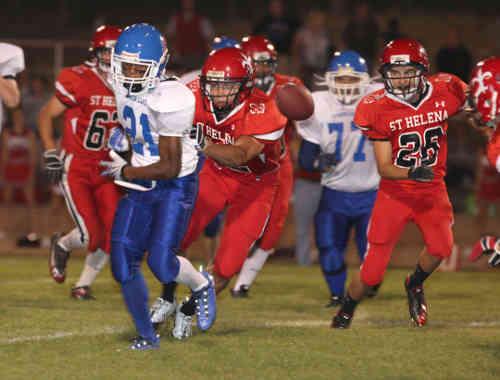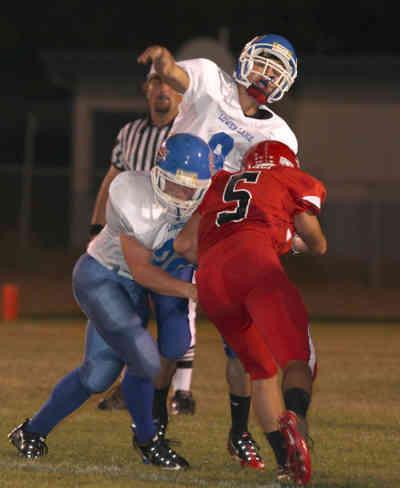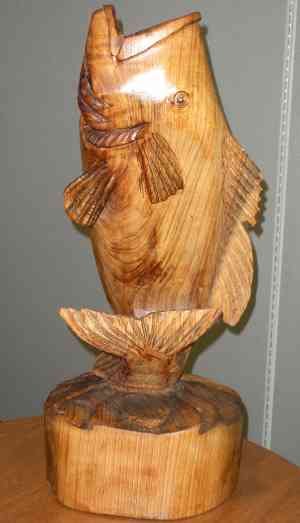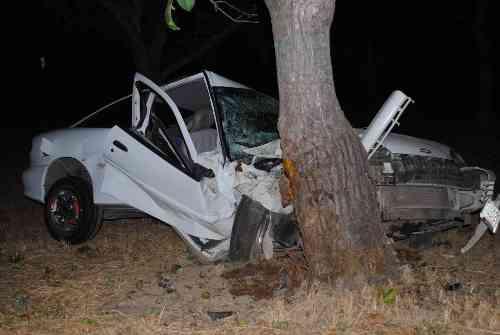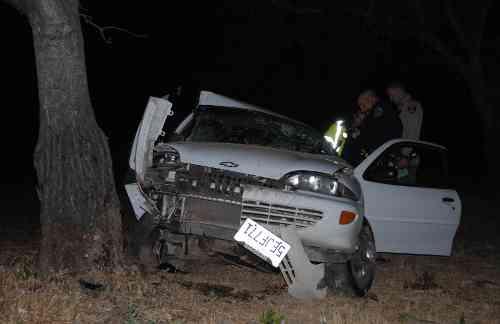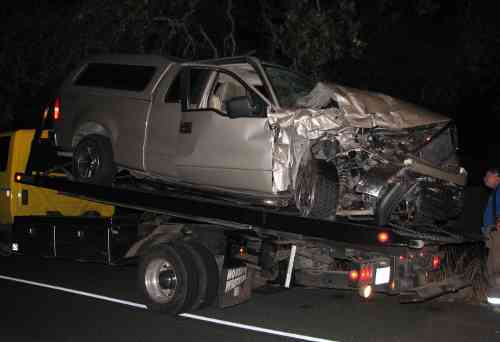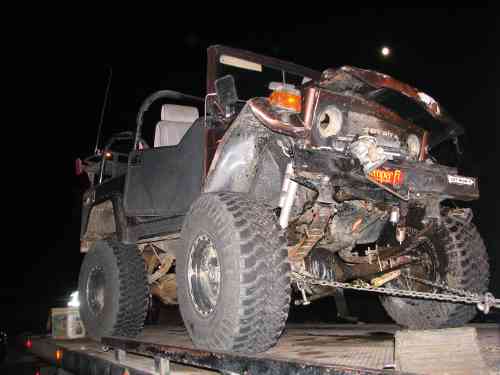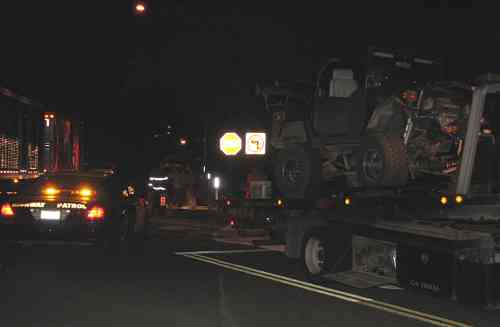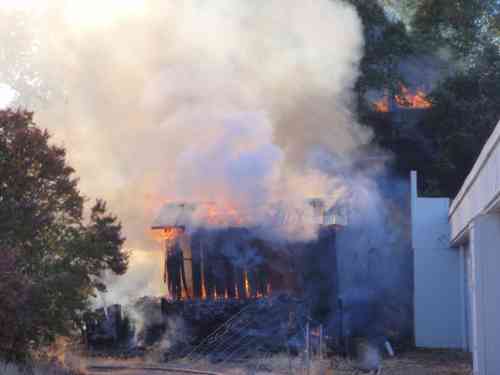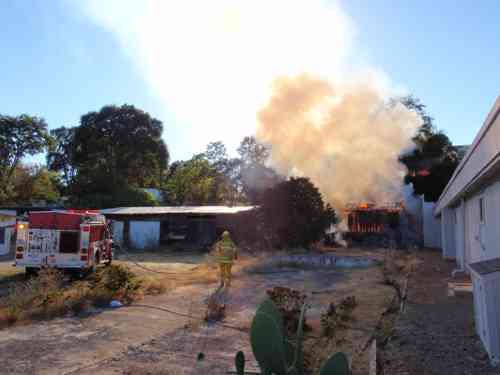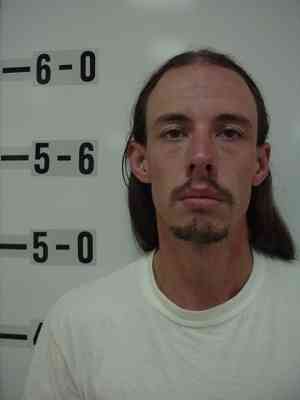LAKE COUNTY, Calif. – A federal marijuana charge stemming from an arrest earlier this month has been dropped against an Upper Lake man, but a federal case filed against him and several co-defendants last year continues to move forward, accompanied by a growing amount of discovery.
Drug Enforcement Administration agents arrested Thomas Lee Carter, 59, on Sept. 1, alleging possession with intent to distribute marijuana and violation of previous release terms, as Lake County News has reported.
Carter had been arrested in August 2009, along with one of his employees, Brett Bassignani, 44, of Nice; Scott Feil, 44, and his wife, Diana, 29, of Upper Lake and Redwood Valley; Diana Feil's stepfather, Steven Swanson, 60, of Sebastopol. They're charged with various counts stemming from the government's allegations that they were connected in a marijuana distribution operation.
On Tuesday the US Attorney's Office filed a notice of dismissal on the charge relating to Carter's Sept. 1 arrest, according to court documents.
An unsigned copy of that dismissal notice was filed online by the court. The notice must be signed by U.S. Magistrate Elizabeth D. LaPorte before it's official, based on court protocol. The San Francisco Clerk of the Courts said Thursday that a signed version had not yet been filed with that office.
Geoffrey Hansen, a federal public defender who is working on Carter's case, said a federal grand jury chose not to indict Carter on the charge.
“One never knows why the grand jury does or does not indict in a particular case,” as the proceedings are sealed, Hansen told Lake County News.
The US Attorney's Office could not offer comment on the case. Spokesman Jack Gillund said they could neither confirm or deny the actions taken Tuesday. In the interest of fairness, the agency does not comment on cases until after they are adjudicated.
The dismissal notice states that the complaint was dismissed “without prejudice,” which Hansen said leaves the door open for the US Attorney's Office to refile the case.
Hansen said the government clearly indicated that it was trying to get Carter back in custody and revoke his bond with the new arrest, a strategy which he said was spelled out in a Sept. 8 hearing. But federal Judge Bernard Zimmerman “would have none of it,” Hansen said.
While the Sept. 1 arrest complaint is gone, still moving forward is the case from the August 2009 arrests, Hansen said. In that case Carter and his co-defendants were released on property-secured bond last year.
If convicted in that case, all of the defendants are looking at multiple years in federal prison and loss of millions of dollars in property to federal forfeiture, based on information in case filings.
The charges against Carter include a single count of conspiracy to possess with intent to distribute marijuana, which carries a minimum 10-year sentence and $4 million fine, and two counts of distributing or possessing with intent to distribute marijuana, each charge carrying a five-year minimum and a $2 million fine.
Bassignani is charged with two counts of conspiracy to possess with intent to distribute marijuana and one count of distributing or possessing with intent to distribute marijuana.
Carter and Bassignani are alleged to have been involved in agreeing to sell 500 rooted marijuana plant clones to an informant, who is alleged to have made direct contact with Bassignani but not Carter.
The government's case alleges that Bassignani told undercover agents that he was Carter's “plant manager,” and that he was employed “for the sole purpose of caring for marijuana plants, and that his salary was paid for entirely with proceeds from the sale of marijuana.”
Scott and Diana Feil and Swanson are charged with conspiracy to possess with intent to distribute marijuana, distributing or possessing with intent to distribute marijuana, conspiracy to launder money and engaging in monetary transactions in property derived from specific unlawful activity. Scott Feil is facing two counts of filing false tax returns, and Swanson two counts of tax evasion.
A superseding indictment handed down in July added another defendant, Mark Leonard Garcia, in connection to a San Diego dispensary. Court documents indicate Garcia is charged with two counts of conspiracy to possess with intent to distribute marijuana.
Hansen said the substantive motions in that case will be in court in December, with the defendants themselves set to appear in federal court the following month. That's when the judge will hold a status hearing on the motions and the issues with the significant amount of discovery in the case, now estimated to be well over 100,000 pages of case documents.
Hansen said the judge has allowed the two sides to do serial filings due to the amount of discovery that continues to come in on an ongoing basis.
“We've had a number of discovery issues with the government,” said Hansen, a complaint he has made in motions to the court, stating that the US Attorney's Office has not been forthcoming with some of the information it's required to share with the defense.
A Tuesday afternoon hearing was held to discuss some of those issues, Hansen said, with the judge taking various arguments under discussion.
Attorneys allege flaws in government's case
In its case filings, the US Attorney's Office is alleging that Carter, Bassignani, the Feils, Swanson and Garcia were part of a marijuana distribution operation with bases of operation in Lake County, Los Angeles and San Diego.
“They've endeavored to make some connection,” said Hansen, suggesting there is an attempt to make Carter something he is not.
Hansen said that, from his perspective, there is no relationship whatsoever between Carter and Scott Feil. His main evidence to support that belief is that the government has never charged Carter with conspiracy relating to Feil's case.
He said he believes that if the case goes to trial it will be sometime in the middle of 2011.
“Motions are going to be very important here,” he said.
Hansen said Feil's lawyers are making very strong arguments that a search of Feil's Los Angeles medical marijuana dispensary in 2005 was illegal and that it has tainted the entire prosecution.
“If they're right, this case goes away,” said Hansen.
He added that in the Tuesday discovery hearing Zimmerman acknowledged that Feil's attorneys' argument on that point is a substantial one.
Santa Monica attorney Charles Lindner, a member of Feil's defense team, explained that on March 15, 2005, the Los Angeles Police Department raided Feil's medical marijuana dispensary, United Medical Caregivers Clinic, and seized $186,416 in assets.
“They started before they got a search warrant,” Lindner said, explaining that the police later found a judge to sign a warrant and allegedly didn't telling him the search involved a medical marijuana establishment.
In that case, in which Feil was represented by attorney Paul Gabbert, the Ninth Circuit Court reversed a lower court decision and found that the search violated the Fourth Amendment – which guards against unreasonable search and seizure – according to a copy of the ruling, filed in October 2009. The Los Angeles Police Department was ordered to return Feil's assets.
“From that point forward we are under DEA investigation,” said Lindner.
He added, “The whole thing about the feds is, they want money,” noting that the federal government receives large percentages of the property seized in such cases.
Lindner said the portions of the case that rely on that illegal 2005 search are what is problematic.
He explained them in terms of a legal doctrine called “fruit of the poisonous tree,” which requires an exclusion of all evidence obtained illegally.
The doctrine was established in a US Supreme Court ruling in Wong Sun versus the United States in the 1950s, according to legal histories of the case. Illegal arrests was made and the resulting statement made by one the defendants was considered by the court to be illegally obtained, and therefore the “fruit” – or direct result – of an illegal arrest.
Lindner alleges that in the 2009 case against Feil and Carter, the unlawful search warrant in 2005 was the start of the investigation.
If the court agrees the government has got a big problem in its case, Lindner said.
Lindner said if the case holds to its schedule, evidentiary hearings in the case should start in January.
However, he's not certain about a time frame for trial.
“These cases can get really, really, really complicated,” he said.
E-mail Elizabeth Larson at This email address is being protected from spambots. You need JavaScript enabled to view it.. Follow Lake County News on Twitter at http://twitter.com/LakeCoNews and on Facebook at http://www.facebook.com/pages/Lake-County-News/143156775604?ref=mf.
